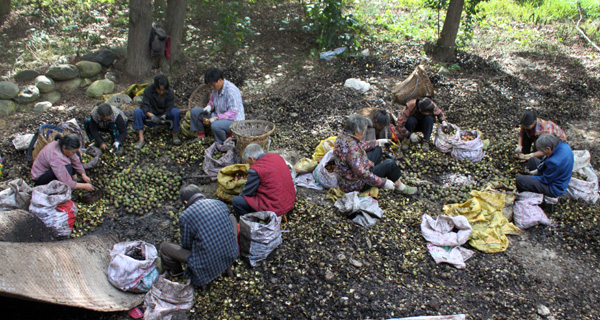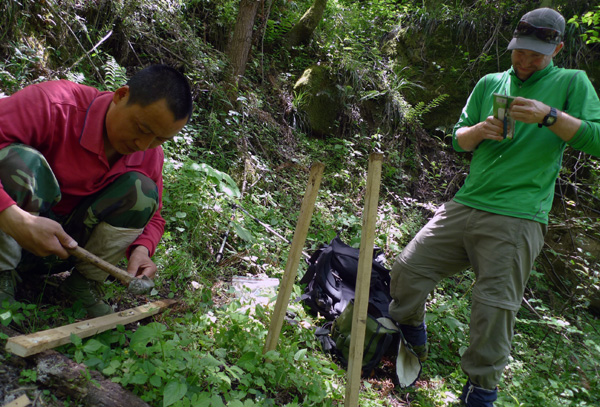Reform promotes protection for pandas
By Wang Qian (China Daily) Updated: 2014-11-24 09:17
 |
|
Laohegou, a former State-owned farm in Sichuan, is now a nature reserve which provides local farmers with higher incomes. |
Zhang Zhihe, head of the Chengdu Research Base for Giant Panda Breeding, said that human population growth and increased land use are the main causes of the rapid contraction of the animals' habitat.
In his book Giant Pandas: Born Survivors, Zhang wrote that giant pandas are highly adept at adapting to changes in their natural habitat. He said the pandas would cope well if their habitat wasn't disturbed by human activity. The growth of human settlements has left many pandas isolated in narrow belts of bamboo no more than 1,000 to 1,200 meters wide, according to the book.
Low survival rate
Pandas are known for having very low survival rates. According to the Chengdu Research Base for Giant Panda Breeding, only 30 to 50 percent of pandas born in captivity in China manage to survive past the infant stage.
Zhang Li said that in addition to eco-compensation, the reform makes it possible for private individuals and organizations to run private protected areas, which is a worthy ambition.
 |
|
Ecological experts work in the Laohegou reserve to determine if the environment is improving for the pandas. |
However, a lack of continuous funding is the biggest challenge facing the operators of private sanctuaries. When they run out of money, the operators have to apply to the local authorities for financial support or expand their tourism industries to attract visitors to overcome the financial shortfall and pay daily operating costs.
Jin said the 2011-2014 budget for the Laohegou project was 20 million yuan ($3.3 million), but after this year the annual operating cost is expected to be less than 3 million yuan.
The Sichuan Nature Conservation Foundation is building a local farm produce brand, and Jin said that within two to three years, the profits from the business are expected to cover the daily operating costs. She hoped the model will be promoted nationwide in the near future.
Back in his village, farmer Chen said the reform is the perfect way to improve the lives of both humans and animals, and is preferable to industrial development because it actively protects the local environment. "Compared with fast money from industrial activity, give me the reform. I'd rather see this place stay the way it is—green forests and blue skies," he said.
Contact the writer at wangqian@chinadaily.com.cn
- Govt encourages people to work 4.5 days a week
- Action to be taken as HIV cases among students rise
- Debate grows over reproductive rights
- Country's first bishop ordained in 3 years
- China builds Tibetan Buddhism academy in Chengdu
- Authorities require reporting of HIV infections at schools
- Typhoon Soudelor kills 14 in East China
- Police crack down on overseas gambling site
- Debate over death penalty for child traffickers goes on
- Beijing to tighten mail security for war anniversary







